3 Doses of Hepatitis B Vaccine Give You the Best Protection from Liver Cancer
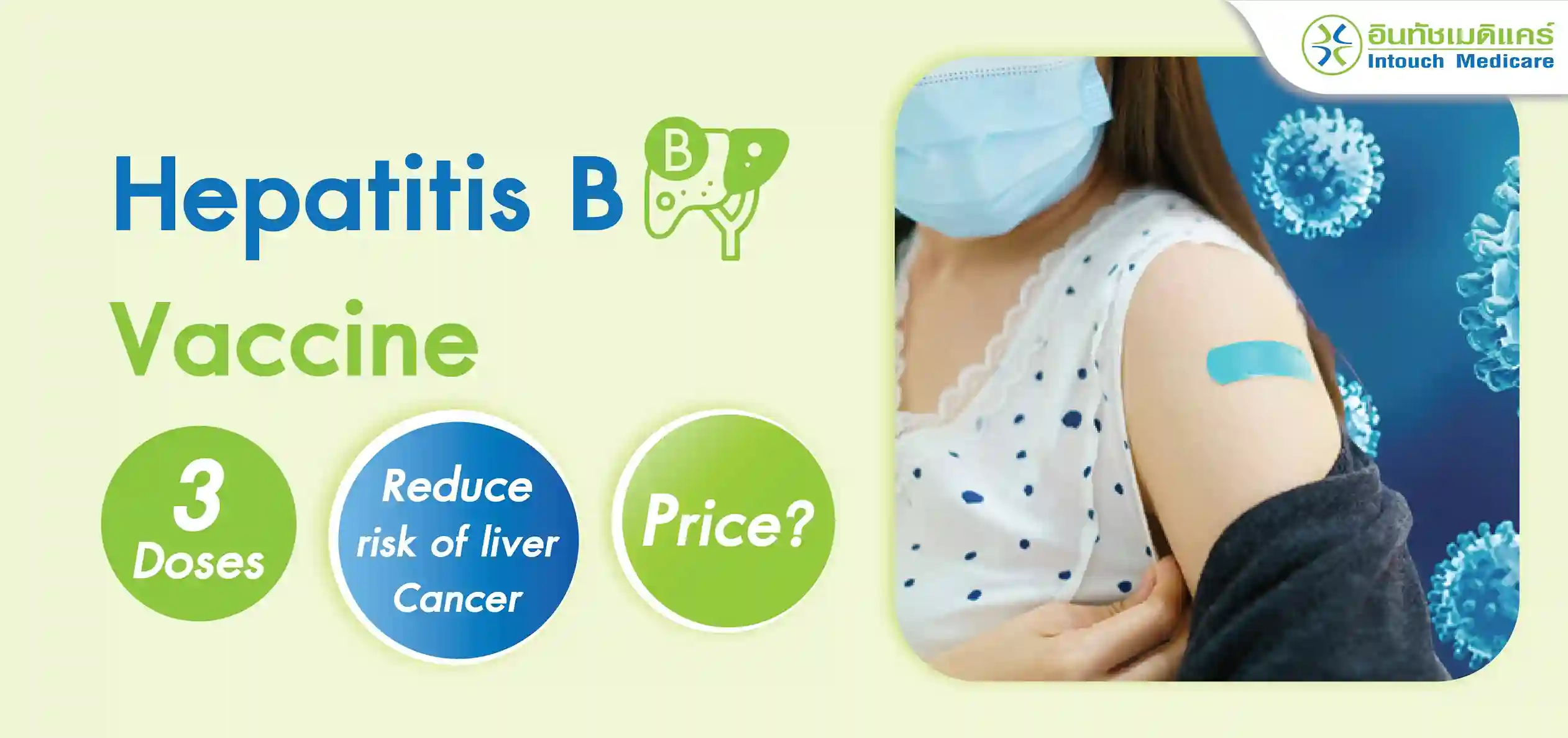
“Hepatitis B Vaccine” gives the best protection for your liver. Hepatitis B virus poses latent, asymptomatic dangers to liver and there is no known cure for hepatitis B after you develop a chronic infection. In some patients, the infection becomes chronic and progresses to cirrhosis or liver cancer. Therefore, you should boost your immunity by getting vaccinated.
The examples of frequently asked questions about the hepatitis B vaccine are “What it can protect against?”, “How many doses are needed?”, “Who should get vaccinated?”, “Do I need a booster shot?”, and “What to do if I do not respond to hepatitis B vaccination after getting 3 doses?”. Learn more interesting questions and topics in this article.
Interesting facts about the hepatitis B vaccine
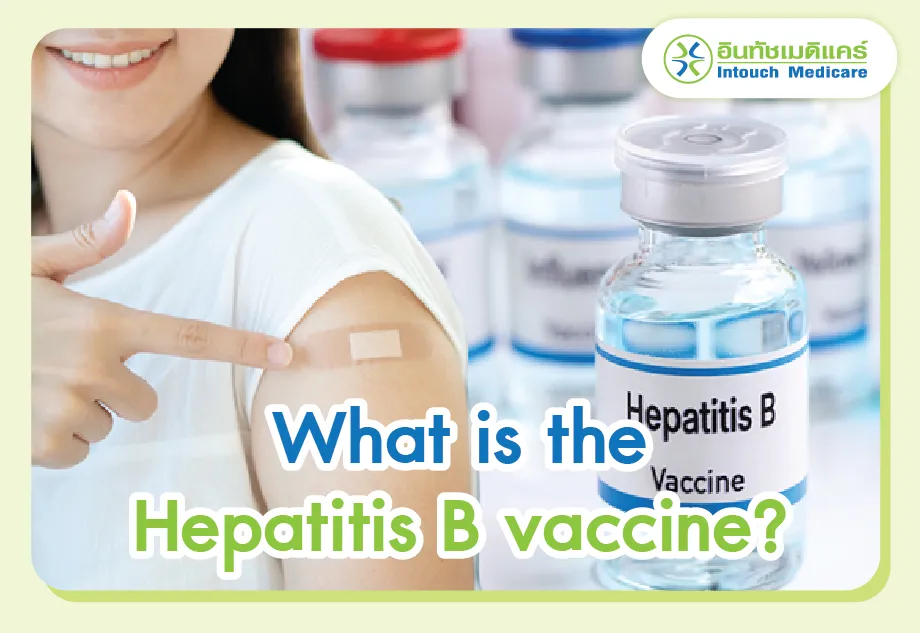
What is the hepatitis B vaccine?
Hepatitis B vaccine is a vaccine that protects you against hepatitis B infection, a virus that damages the liver. This infection can cause either acute or chronic hepatitis.
|
After hepatitis B vaccination, the body produces antibodies to get rid of the virus.
What are the advantages of hepatitis B vaccine?
Protects against hepatitis infection after you complete 3 doses before exposure to the virus
Prevents severe complications
 , including cirrhosis, liver cancer, and death
, including cirrhosis, liver cancer, and deathIn pregnant women
 , it lowers the risk of mother-to-child transmission as babies born to hepatitis B carriers are more likely to develop chronic infection
, it lowers the risk of mother-to-child transmission as babies born to hepatitis B carriers are more likely to develop chronic infectionHelps prevent infections in medical professionals who must interact directly with patients
Prevents infection in those who engage in unsafe sexual activities
Who should get vaccinated?
The hepatitis B vaccination is recommended for all individuals, regardless of age, as it is a part of the National Vaccination Program.
All infants, older children and adolescents
Children and adolescents between the ages of two months and eighteen years should receive vaccination in accordance with the immunization schedule set by the government. ![]() This is particularly true for infants born to carriers of hepatitis B, as they are more susceptible to infection. Although hepatitis B infection in infants is usually asymptomatic, however, it can eventually progress to cirrhosis and liver cancer.
This is particularly true for infants born to carriers of hepatitis B, as they are more susceptible to infection. Although hepatitis B infection in infants is usually asymptomatic, however, it can eventually progress to cirrhosis and liver cancer.
Adults who are not vaccinated against hepatitis B
Adults who have not received their hepatitis B vaccination should do so, especially those at risk.
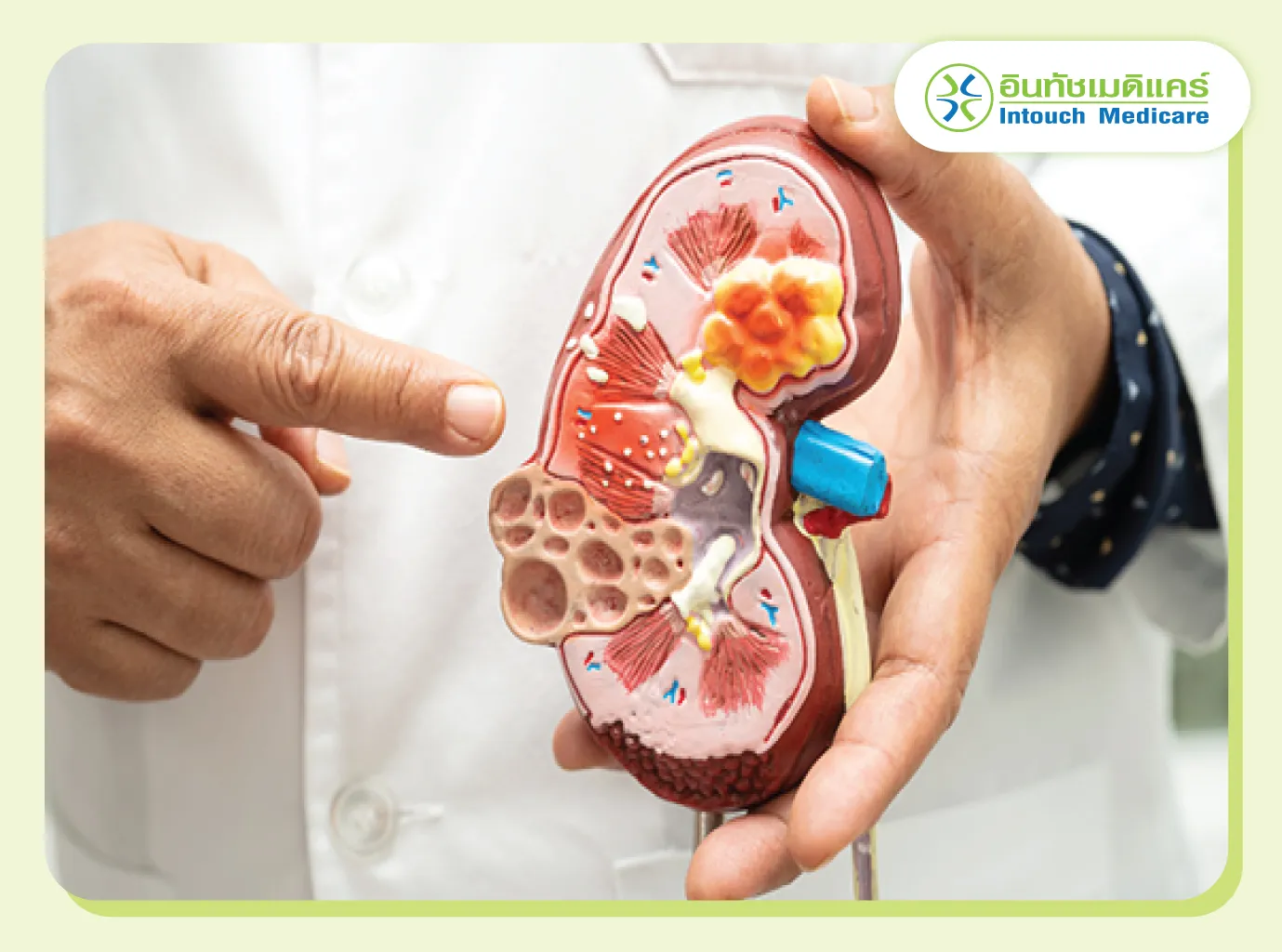
Kidney dialysis patients.
People with liver disease or chronic glomerulonephritis.
Diabetic patients under 60 years of age.
Patients with AIDS.
Those who engage in unprotected sexual activities
 , such as having sex without a condom.
, such as having sex without a condom.People who have a problem with substance abuse.
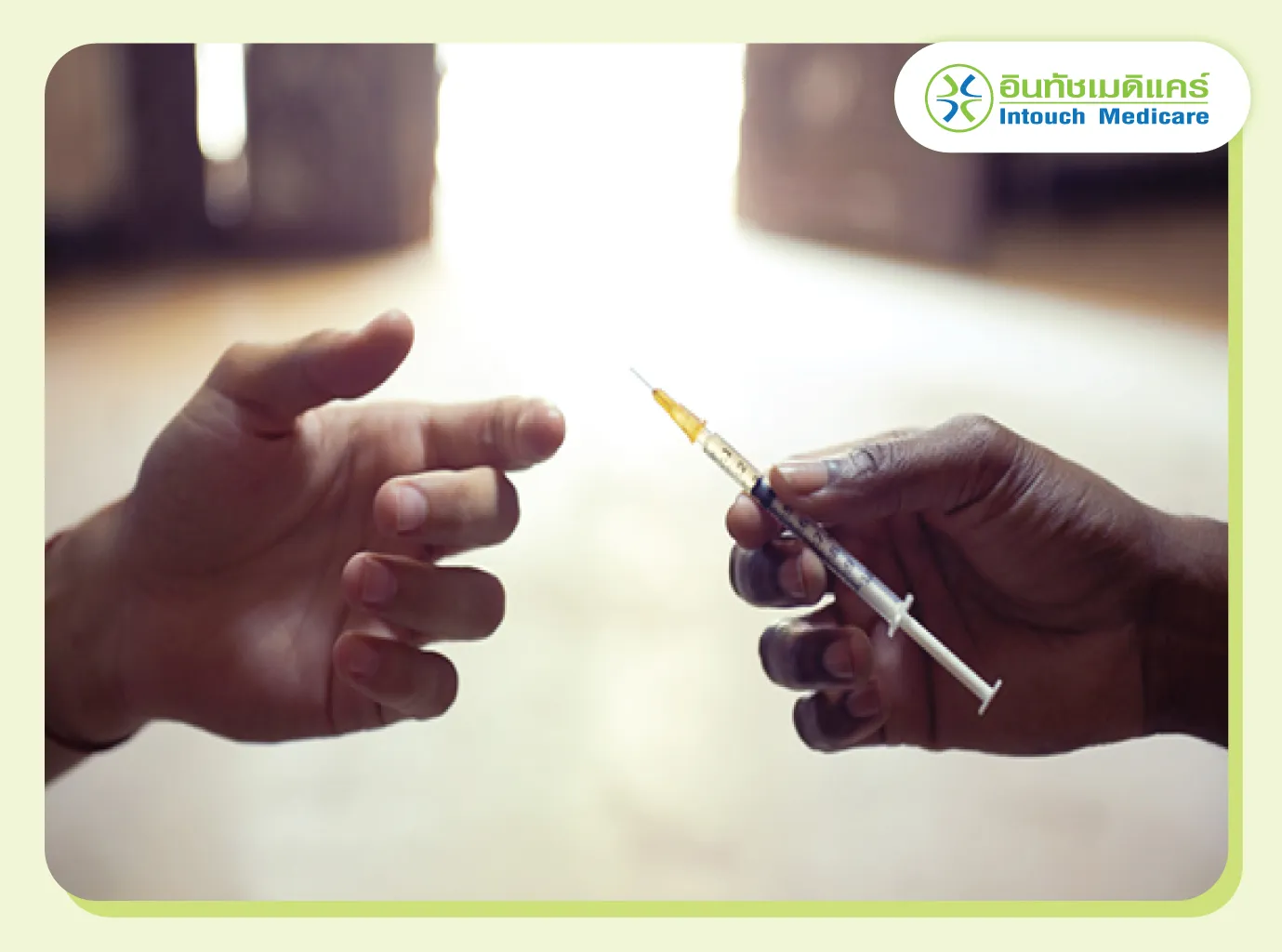
People who engage in risky sexual activities, such as having multiple partners
People who share syringes or needles with others
Physicians and other medical professionals
 who often handle blood or body fluids
who often handle blood or body fluidsIndividuals who cohabit with hepatitis B carriers, including spouses
People who have to travel to countries with high infection rates, such as countries in Asia, Africa, South America, and the Caribbean
When is the best time to get hepatitis B vaccine?
Hepatitis B vaccine can be given as early as infancy and it is recommended to start giving it to babies as early as two months old. However, due to a high risk of mother-to-child transmission, the vaccine should be administered as early as one month of age if the mother is a carrier of hepatitis B.
How long does protection last after hepatitis B vaccination?
Hepatitis B vaccine provides immunity for more than 20 years or even lifelong protection if given as early as infancy.
Do I need a booster shot?
No booster shot is needed because hepatitis B vaccine provides long-term or lifelong protection. Thus, hepatitis B vaccination is highly effective.
What to do if I do not respond to hepatitis B vaccination?
Another 3-dose vaccine series may be required if you do not respond to hepatitis B vaccination after completing 3 doses. And in such case, you need to undergo an immunity
|
Reference: Vaccine Preventable Disease Division, Department of Disease Control, Fiscal Year 2021, Guidelines for Hepatitis B (HB) Vaccination in Medical and Public Health Professionals.
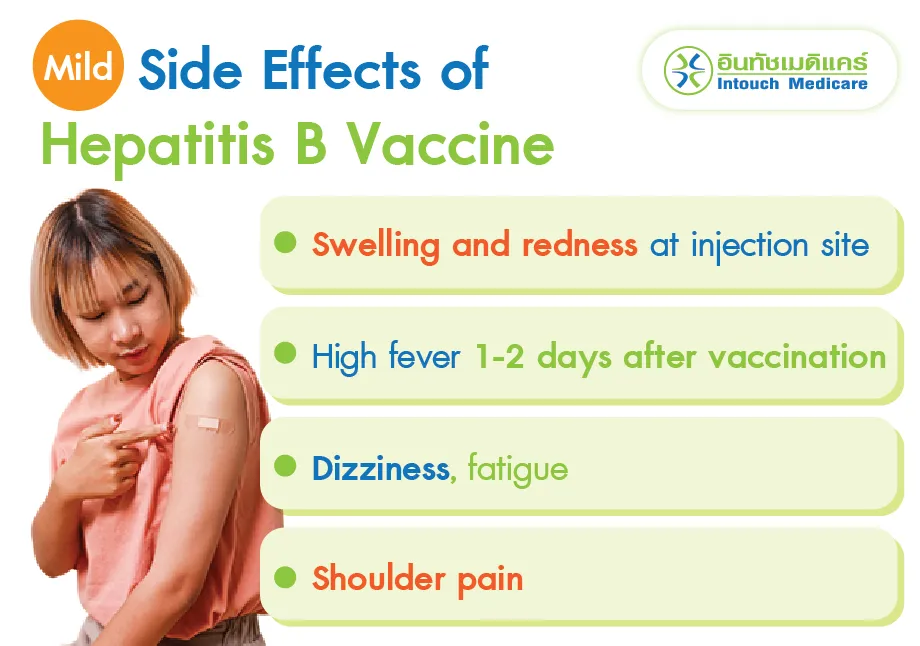
After hepatitis B vaccination, the following side effects may occur. However, these side effects are rare and will improve on their own.
Swelling and redness at the injection site
High fever of 37°C or higher for one or two days after vaccination
Dizziness, fatigue, vertigo, blurred vision, or tinnitus
Shoulder pain
Price of hepatitis B vaccination
Adult
A 3-dose series of hepatitis B vaccination: 850 Baht/dose
A 3-dose series of hepatitis B vaccination with hepatitis B immunity test: 2,190 Baht
A 3-dose series of hepatitis B vaccination with hepatitis B virus test and hepatitis B immunity test: 2,580 Baht
Children
6-in-1 vaccine (against diphtheria, tetanus, whooping cough, polio, hepatitis B and Hib): 2,290 Baht

References
The Immunization Action Coalition, Vaccine Information Statements
Centers for Disease Control and Prevention (CDC), Hepatitis B
Vaccine-Preventable Diseases Division, Department of Disease Control (Fiscal Year 2021), Guidelines for Hepatitis B (HB) Vaccination in Healthcare Workers
Knowledge on Hepatitis, National Institute of Health, Department of Medical Sciences, Ministry of Public Health
For more info and to make an appointment.
Hot Line 081-562-7722
Composer: Intouchmedicare
Last edited : 19/09/2024
Images may be used without prior permission exclusively for educational or informational purposes, as long as proper credit is given to intouchmedicare.com


